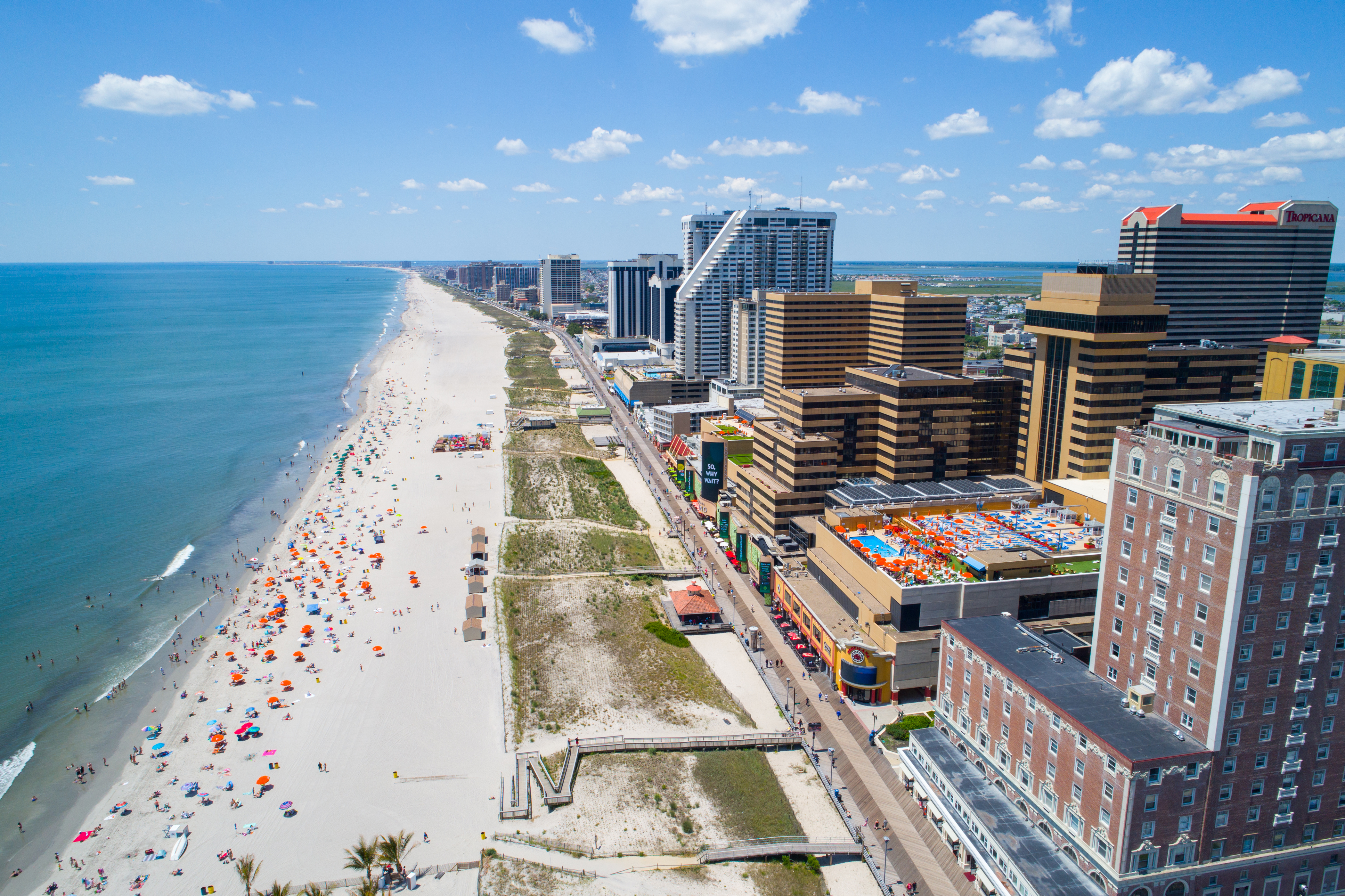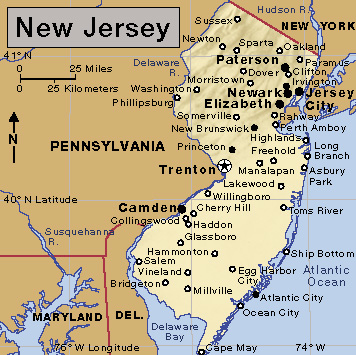Atlantic City, New Jersey (pop. 38,497), is one of the largest seaside resorts in the world. It lies on Absecon Island, on the southeast coast of New Jersey. Roadways connect Absecon Island to the mainland. Atlantic City and another city—Hammonton—form a metropolitan area of 369,797 people.

Atlantic City is famous for its gambling casinos and its Boardwalk. The Boardwalk—made of wood, steel, and concrete—is 60 feet (18 meters) wide. It stretches along the Atlantic Ocean for 41/2 miles (7.2 kilometers) in Atlantic City. It continues for 2 more miles (3.2 kilometers) in Ventnor City, a community southwest of Atlantic City. The Boardwalk is lined with restaurants, shops, and hotels with gambling casinos.
Also on the Boardwalk is Boardwalk Hall. The renovated 1929 landmark building, formerly called the Convention Center, is a sports stadium and concert hall. It was the site of the Miss America Pageant from 1921 to 2004. The pageant returned to the hall in 2013 and a number of years thereafter. Five piers extend into the Atlantic Ocean from the Boardwalk. Places of interest on the piers include an art center and a shopping mall.

Tourism ranks as Atlantic City’s chief economic activity. The city has long attracted many vacationers and weekend and holiday visitors. Its first gambling casino opened in 1978. Atlantic City later became home to about a dozen casinos, which attracted large numbers of additional visitors to the city. Besides tourism, the city’s economic activities include fishing.
Atlantic City has a mayor-council form of government. The city was incorporated in 1854. A Boardwalk was completed in the city in 1870. The present one dates from 1896. In 1976, New Jersey voters approved a referendum to allow gambling casinos in Atlantic City. The casinos were originally promoted as a way for the city to finance urban renewal. In the late 1900’s, after the arrival of the casinos, some areas of the city were rebuilt. By the mid-2010’s, however, a number of casinos in the city had closed, shrinking the tax base and leaving the city deeply in debt. In 2016, the state approved a plan that gave state leaders control of many of the city’s local government functions for five years. The state extended its control over the city for four additional years through a plan passed in 2021.
In October 2012, Hurricane Sandy struck the Atlantic Coast, killing more than 100 people and causing widespread damage. Floodwaters covered much of Atlantic City, and sections of the city’s famed Boardwalk were washed away. The Boardwalk was repaired over the next several years. Many of its wooden sections were replaced with concrete.
